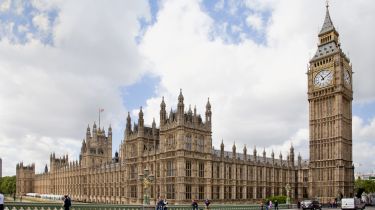No help for electric car buyers in Autumn budget statement
Chancellor resists calls from industry to fund EV purchase grants or reduce VAT on public charging

Chancellor Jeremy Hunt has resisted calls for a new package of taxpayer-funded incentives to support the sale of new electric cars, or to reduce the VAT costs of using electricity from a public EV chargepoint.
While his 22 November autumn statement focused heavily on tax cuts for business and individuals, the Chancellor made no effort to address repeated pleas from the car industry trade body, the Society of Motor Manufacturers and Traders, for measures that would make it cheaper for private buyers to adopt electric cars.
The government’s previous incentive package - the Plug-in Car Grant - was phased out in 2022 after being launched in 2011 by the coalition Tory/Lib-Dem government under David Cameron. Initially grants of up to £5,000 were offered but these handouts had been reduced to £1,500 by the time the scheme was axed.
Instead of criticising the omission, the SMMT - which had renewed its demand for incentives on EV sales following the government’s recent confirmation that its Zero Emissions Vehicles (ZEV) Mandate would go ahead - said only that it looks forward to how the government “will support consumers in making the switch to zero emission motoring, as we must not only make these vehicles locally but sell them.”
Otherwise, the SMMT chose to take an upbeat tone and welcomed the tax incentives announced by Hunt for business. “The Chancellor’s statement today, with its focus on business growth, responds to our industry’s need for measures that allow UK automotive to compete for investment,” said SMMT chief exec Mike Hawes. “The attractiveness of the UK will be bolstered by permanent full expensing and, given the importance of decarbonising the market and manufacturing, speeding up grid access.”
Jon Lawes, managing director at one of the UK’s leading vehicle leasing companies, Novuna Vehicle Solutions, also welcomed new measures to reform electricity grid access for charging infrastructure companies, and support business investment. But, Lawes said, there is “an urgent need to boost net-zero infrastructure around the UK, and improve EV purchase incentives. It is vital that these measures translate into local investment which provides businesses and consumers with the confidence to make the switch.”
There was no news from the chancellor on any proposed changes to duty charged on fuel. "The threat of the Rishi Sunak’s Budget temporary 5p cut in duty being reversed in the 2024 Budget still hangs over motorists' heads,” said FairFuel UK founder and London Mayoral candidate for Reform UK, Howard Cox. “That event could have been quashed completely today,” he said, adding that inflation could have been reduced massively with a fuel duty cut.
Edmund King, Automobile Association president, also welcomed the Chancellor’s measures to speed up access to the grid, investment in green automotive tech and funding for training.
“We would still like to see incentives for drivers to help them to take part in the zero emission transition when they are ready to do so. Hopefully these incentives, a further freeze in fuel duty, and a cut in Insurance Premium Tax will be outlined in the Spring Budget,” he said.
What do you think of the Autumn statement? Let us know in the comments section below...
Find a car with the experts





